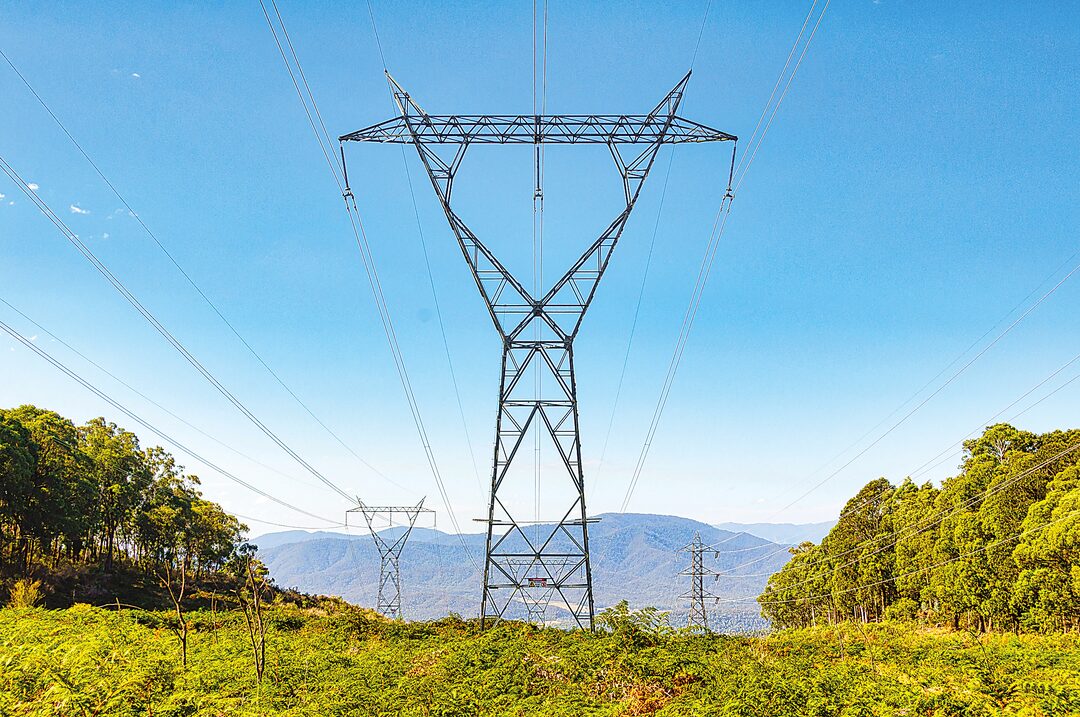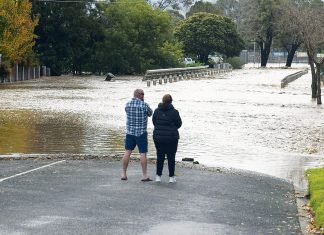By PHILIP HOPKINS
LOWER energy prices first and support for all technologies – including nuclear energy and advanced coal and gas power stations – should be a priority in energy policy, not the current arbitrary net zero approach, according to the Page Research Centre.
Energy policy should prioritise reducing prices for households and businesses rather than chasing arbitrary emissions targets, says Page in its discussion paper, ‘Delivering a High Energy Australia’.
“Back innovation: A common sense approach to renewables must be the priority. This means using solar panels where they make economic and practical sense, such as in commercial and industrial precincts and not across our pristine landscapes or prime agricultural land,” says the report.
“Empower local action: Local communities should be able to lead initiatives such as waterway protection, land restoration, soil carbon and carbon capture projects to deliver jobs and stewardship across Australia.”
The Page Centre report was the guiding hand behind the National Party’s decision to abandon its net zero policy. The centre is affiliated with the Nationals but is an independent research body akin to the Liberal Party’s Menzies Research Centre and the Labor Party’s Chifley Research Centre.
The report says Australia produces just one per cent of the world’s emissions, yet Australia is cutting its emissions at twice the rate of other advanced economies.
“The government’s current plan would force emission reductions on Australia of six to eight per cent a year – at least six times faster than the one per cent annual historical pace of comparable, developed nations,” the paper says.
“We should reduce emissions in line with comparable nations, not ahead of them. Share the burden equally.”
The document emphasises what it calls ‘A New Vision for Environmental Stewardship’ – the wellbeing and strength of Australia’s natural environment depend on the active care and creativity of those who live and work closest to it.
“Farmers, fishers, and foresters walk their fence lines, manage weeds and feral species, regenerate soils, and invest in the health of the landscapes that sustain both nature and nation. This lived stewardship, grounded in local knowledge and practical care, is the foundation of true conservation,” it says. “A new environmental vision should seek harmony between conservation and national purpose.”
That balance means:
Driving economic growth through responsible land and resource management that sustains livelihoods while protecting ecosystems;
Conserving and recovering native species and restoring ecological health through locally led, science-based action;
Empowering landholders to manage their land flexibly, rewarding regeneration and innovation rather than punishing use;
Restoring the damage caused by poorly planned renewable energy projects, ensuring that the drive for decarbonisation does not destroy the landscapes, habitats, and biodiversity it claims to save;
Responsible reductions in carbon emissions. While net zero is not the right approach, Australia needs a plan based on common sense to lower emissions, and;
Expanding access to public lands and waters. Common sense approaches to the use of public lands for recreation, hunting, and fishing will strengthen the human connection to nature that underpins long-term stewardship.
“Instead of treating nature as something to be locked away, Australia should embrace an environmentalism that is participatory and recognises that prosperity and conservation go hand in hand,” it says.
The paper pushes a practical pathway for replacing net zero with a national framework grounded in realism, fairness, and confidence.
Page says net zero is failing. Since Australia adopted net zero, household electricity prices have risen by 39 per cent, despite government promises of $275 bill reductions.
The paper says the high costs place Australian manufacturers at a big disadvantage globally – they pay 60 per cent more than their US counterparts and 140 per cent more than producers in China.
“Even Japanese industry faces lower electricity prices than Australia, despite Australia supplying 30 per cent of Japan’s energy needs through our coal and gas exports. France, with its nuclear-powered grid, enjoys prices around 26.3 per cent lower than those in Australia,” the paper says.
“Electricity typically accounts for 20 per cent to 40 per cent of variable costs in energy-intensive industries such as aluminium, cement, fertiliser and critical minerals processing.”
This 20-60 per cent cost deters investment, limits export competitiveness and erodes value-added manufacturing.
The paper emphasises that renewables at scale no longer drive down prices; they drive up system complexity. Policy should be redirected towards energy reliability and affordability. The National Electricity Rules should be reformed so that AEMO’s primary duty is to deliver the lowest possible prices while maintaining reliability.
“Replace the Capacity Investment Scheme with a genuinely technology-neutral framework that allows all generation sources – including nuclear, coal, and gas – to compete on a level playing field,” it says.
The report says repeal the Climate Change Act 2022 and remove “net zero” as Australia’s formal target under the Paris Agreement.
“Adopt a practical emissions trajectory of 2–9 Mt CO2-e reductions per year, and restore the Emissions Reduction Fund as the central, transparent mechanism for abatement,” it says.
“Remove hidden carbon pricing and compliance costs, including the Safeguard Mechanism, New Vehicle Efficiency Standard, and climate-disclosure rules, that raise prices without delivering measurable environmental gains.”
The report emphasised the importance of strategic and industrial sovereignty.
“Designate fuel refining, fertiliser, metals, data infrastructure, and defence manufacturing as strategic industries vital to national resilience. Provide these sectors with targeted exemptions and fast-tracked approvals under joint oversight by industry and the National Security Committee of Cabinet. Establish an industrial sovereignty fund to co-invest in critical value-adding capacity and secure Australian control of essential assets, ” it says
Page says the Nature Positive agenda should be replaced with a Stewardship and Renewal Act that empowers landholders and Traditional Owners to lead practical conservation.
“Upgrade National Parks and recreation infrastructure to improve accessibility, amenity, and environmental protection. Audit and rehabilitate renewable-energy sites, re-establish the National Soils Advocate, expand Indigenous Ranger programs, and launch coordinated feral-animal and carp control initiatives to restore ecological health and regional prosperity,” the paper says.












